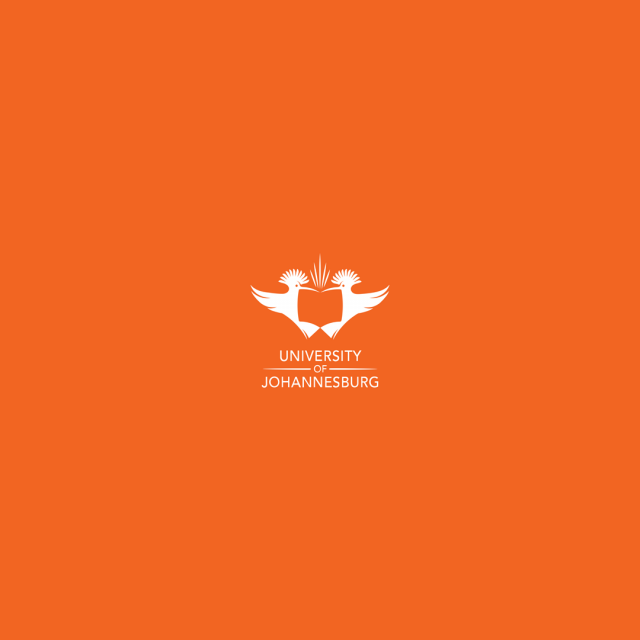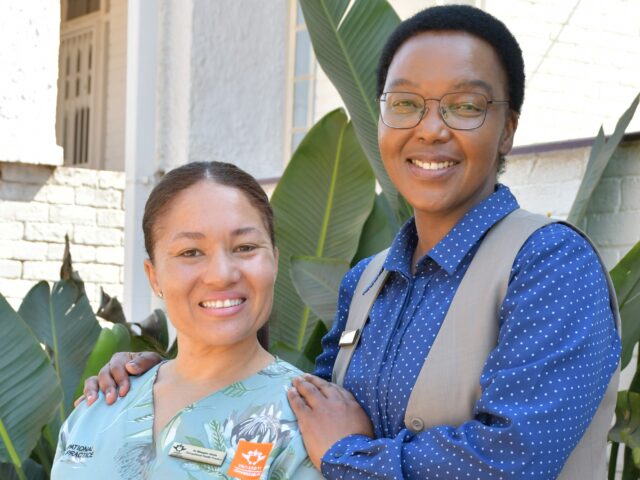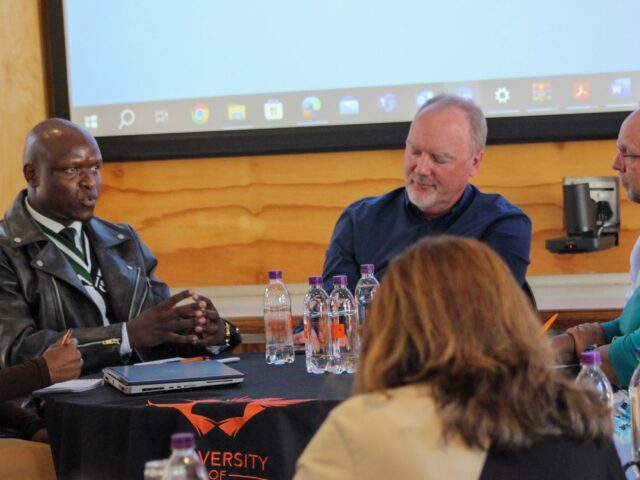Short Learning Programme in Risks & Socio-Environmental Sustainability
Home » University Courses »General
Faculty Website: Faculty of Science
Department: Department of Geography, Environmental Management & Energy Studies
Programme Level: Continuous Education Programmes
Programme Name: SLP in Risks & Socio-Environmental Sustainability
Programme Code: S2RSSQ
Medium of Facilitation: part-time
NQF Level: 5
NQF Credits: 8
SAQA:
Senate Approval: S397/2020(3)
Application Start Date: 1 April 2024
Application End Date: 14 December 2025
Campus: Auckland Park Kingsway
Contacts: 011 559 4423
Email: bopakip@uj.ac.za
Duration of Study: 4 Weeks
Purpose
We are in the middle of the Anthropocene, a period characterized by a global environmental crisis (e.g., the ongoing 6th mass extinction, climate change, environmental injustice, etc.) whose consequences on our social fabric are now a matter of concern. This crisis is mainly driven by the unsustainable use of environmental assets in combination with ill-informed decisions whose impacts could be felt across generations. Under the business-as-usual scenario, we risk losing the ecosystem services on which humans rely for their survival. As a result, the future of the human species itself is compromised. In this context, the present SLP aims to train current and future leaders on risk prevention, risk assessment and risk management towards more sustainable human-environment interactions.
Students who complete the short learning programme in risk and socio-environmental sustainability will acquire a number of competencies and skills. This SLP will enable students to be professionally competent and to become acquainted with the different procedures in environmental risk assessment as well as basic skills in understanding social and environmental sustainability and its relevance for organizations in their different contexts.
This learning programme is developed in line with some of the objectives of the National Skills Development Strategy III of the Department of Higher Education and Training, notably Goal 4.2 and Chapter 5. Goal 4.2 is set to increase access to occupationally‐directed programmes that are in line with (1) Learning Pathways for High-Level Skills; (2) Learning Programme Regulations; (3) the Higher Education Qualifications and Skills Framework; (4) the SETA Grant Regulations; and the (5) Professional Graduate Pathway Report. On the other hand, Chapter 5 lays emphasis on the acquisition of green skills for a green economy and makes recommendations for future green skills development in South Africa. Similarly, the Industrial Policy Action Plan (IPAP) identifies the green economy as one of the three priority areas for scaling up meanwhile the Environmental Sector Skills Plan for South Africa (ESSA) describes the status quo with regard to the demand and supply of environmental skills, and provides information on scarce and critical skills in the sector from a supply and demand perspective.
Students who complete the short learning programme in risk and socio-environmental sustainability will acquire a number of competencies and skills. This SLP will enable students to be professionally competent and to become acquainted with the different procedures in environmental risk assessment as well as basic skills in social and environmental sustainability and its relevance for organizations in their different contexts.
Curriculum
The course content is summarized in 5 themes summarized as follows:
Theme 1: Environmental and social governance: A brief Introduction
- The objectives of environmental and social governance
- Explaining the importance of environmental and social governance
- Key themes in environmental and social governance
Theme 2: Environmental, economic and social risk assessment:
- Understand and explain the concept of sustainable finance
- Categorize environmental and social risks
- Conduct environmental and social risks assessment
- Provide mitigation options of risks
- Understand the management of environmental and social risks
- Environmental Auditing
Theme 3: Environmental aspects of sustainability:
- Explain global environmental concerns.
- Explain the concept of carbon footprint
- Provide options for cleaner production
- Provide ways to prevent pollution
- Contribute strategies to meeting SDGs 2030
Theme 4: Social aspects of sustainability:
- Explain the five dimensions of social sustainability
- Discuss the importance of social sustainability
- Recommend options towards achieving social sustainability within an organization
Theme 5: Sustainability reporting:
- Understand overview of reporting standards
- Understand material topics and boundaries
- Present and compile a sustainability report
Admission Requirements
The proposed SLP is developed to cater for current university graduates but also novice professionals specializing in environmental management whether at entry level of the job grading continuum or already at post school academic environment. A qualification corresponding to NQF5 in any discipline is required. This implies that, even if you do not have a solid background in environmental management or science, you can still apply, given that you will be introduced to basic relevant concepts at the start of the course.
Selection Process
Fill the application form (below) and send it to bopakip@uj.ac.za along with supporting documents. Then you will receive feedback informing you that you qualify or not for the programme (a minimum of NQ5 qualification is required).
If you qualify, then you will have to submit your application online following the process explained below. Through the online application process, your student number will be generated (if you were once a UJ student, you will have to use your old student number). After generating your student number online, specify it on the application form and email it to bopakip@uj.ac.za. Send these documents before or on 15 February 2025, for the first batch of students who will start the course on March 1st 2025 and before or on April 30th 2025, for the second batch who will start on May 17th 2025.
For further information, contact:
Dr. Lee-Ann Sade Modley
Programme coordinator
Dept. of Geography, Environmental Management and Energy Studies University of Johannesburg
P.O. Box 524
Auckland Park 2006
Tel. No. (011) 559-3928
E-mail: lee-annm@uj.ac.za (preferably).
More Information
Please use the following application Specific Token when applying: SCISLP Mode of lectures and Fees Lectures will be delivered primarily using online platforms (Zoom or Teams), and take place once a week only on Saturdays (5 sessions in total). However, the face-to-face option is also available depending on how many students opt for it (requirement for face-to-face option: at least 10 registered students). The fee for online sessions is R10 000 whereas that of face-to-face sessions is R12,000. The fee must be paid in advance and the proof of payment sent to the administrator (bopakip@uj.ac.za). The course fee excludes the UJ registration fee of R1 150. Please take note that if your employer is going to pay the fees, all arrangements for the payment must be made by the students themselves. If the employer pays the amount via a bank transfer, evidence of payment must be provided during the registration and the student number must be used as reference. Please take notice of the fact that the University might charge a further administrative fee towards new students not previously enrolled at this university to account for the process of capturing personal data onto the computer system.
UJ Faculties
| All Faculties
College of Business and Economics (CBE)
Created from the former Faculties of Management, and Economic and Financial Sciences



Faculty of Engineering & the Built Environment
First in South Africa offering a full range of professional engineering qualifications










